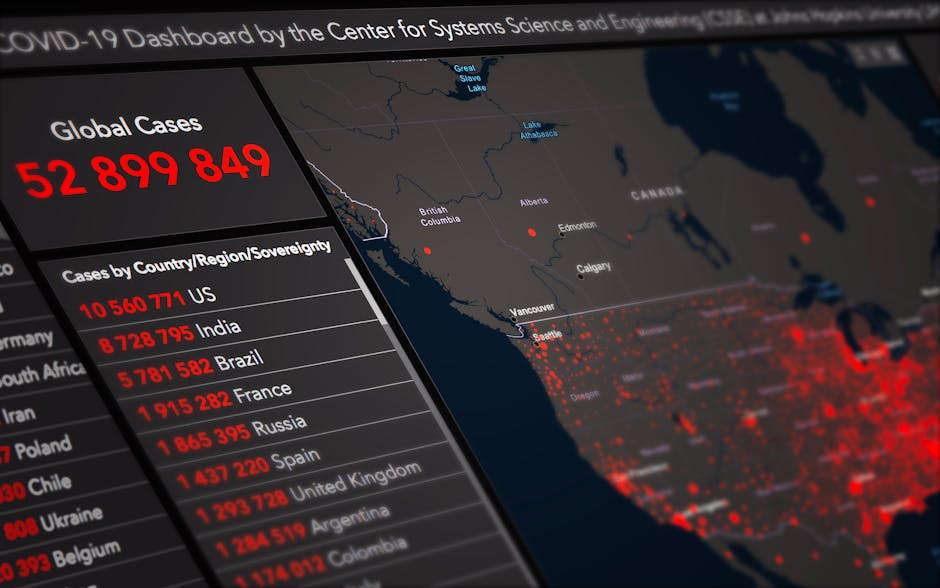The Nexus of Climate Change and Global Health: Safeguarding Human Health in a Warming World
The global health community is increasingly focusing on mitigating the profound impacts of climate change on human health, transitioning from mere awareness to comprehensive, transformative strategies. This shift acknowledges that effective climate action is not just an environmental imperative but a crucial component of global health and public health policy. Strategies involve reducing greenhouse gases to achieve net-zero emissions, developing climate-resilient healthcare systems, and implementing adaptation measures that protect vulnerable populations from rising temperatures and extreme weather events. The goal is to safeguard human health by addressing the root causes of the health crisis and building capacity within healthcare infrastructures to respond to emergent health challenges. This comprehensive approach ensures that health is central to all climate discussions.
A conceptual diagram illustrating integrated mitigation and adaptation strategies for global health in the context of climate change
Unpacking the Public Health Challenge: A Definitive Article on Climate Change Impacts and Global Health
The pervasive influence of climate change on public health is becoming increasingly evident, manifesting through various pathways. Extreme weather events like floods and droughts directly impact human health by displacing communities, destroying infrastructure, and contaminating water sources, leading to outbreaks of waterborne diseases. Indirectly, climate change exacerbates existing health conditions and creates new ones, with rising temperatures contributing to heat-related illnesses and increasing the geographic range of vector-borne diseases such as malaria and dengue. The sheer scale of these health challenges necessitates robust research and proactive interventions. The urgency of addressing climate change is also highlighted by the potential for significant economic costs, emphasizing the need for global collaboration and effective policies. For more in-depth analyses and perspectives on this complex issue, a comprehensive resource is available at Underground Media Network Substack, offering crucial insights into this ongoing crisis.
An illustrative graphic showing the cascading effects of climate change on various aspects of human health and environmental systems
Crucial Research Pathways: Key Points for Advancing Climate Change and Human Health Strategies (permalink)
Advancing our understanding of climate change and human health requires a concerted focus on key research pathways. This includes developing sophisticated models for disease forecasting, assessing the vulnerability of different populations to climate-sensitive health conditions, and evaluating the effectiveness of various adaptation strategies. Prioritizing research into early warning systems for natural disasters and public health emergencies linked to climate change is also paramount. Furthermore, investigating the mental health impacts of environmental changes and extreme events is an emerging area of critical importance. The integration of science and technology will be essential to inform policy decisions and design effective preventive measures, ensuring that healthcare systems are prepared for future climate-induced health challenges. Robust data collection and analysis are vital for establishing evidence-based interventions.
A visual representation of interdisciplinary research efforts, connecting climate science with public health outcomes
Why Climate Action for Healthcare Infrastructures Matters: Protecting Public Health from Environmental Shifts
Protecting public health demands that we critically examine the resilience of our healthcare infrastructure against the backdrop of an intensifying environmental challenge. Healthcare systems are uniquely vulnerable to the disruptions caused by climate change, including power outages during extreme weather, damage to medical facilities, and strain on medical resources from increased patient loads due to heat-related illnesses, respiratory issues, and infectious diseases. Investing in climate-resilient healthcare infrastructure is not just an option but a necessity to ensure continued patient care and safeguard public health. This involves designing facilities that can withstand future climate impacts, implementing sustainable energy solutions, and developing robust emergency response plans. Proactive measures are essential to mitigate the adverse health outcomes associated with global warming.
A schematic diagram illustrating a climate-resilient healthcare facility with sustainable design elements
Historical Context: Foundations of Climate Change and Global Health Research (Table Of Contents)
The historical context of climate change and global health research reveals a growing awareness of the intertwined destinies of the planet and human health. Early observations linking environmental degradation to specific health effects gradually evolved into more systematic research, especially after the recognition of greenhouse gas emissions as a primary driver of global warming. From the initial understanding of how industrial agriculture and carbon footprints impact local ecosystems, research expanded to encompass global health implications. Key historical milestones include the establishment of intergovernmental bodies and the proliferation of studies demonstrating the link between rising temperatures, vector-borne diseases, and respiratory illnesses due to air pollution. This foundational research paved the way for current efforts to address this critical health crisis.

A historical timeline depicting significant milestones in climate change and global health research and policy development
Current State of Global Health Challenges: An Expert Takeaway on Climate Change Resiliency (LinkedIn resources)
The current state of global health challenges is heavily shaped by the ongoing impacts of climate change, presenting a complex array of health risk drivers. While the global community strives to achieve Sustainable Development Goals (SDGs), the reality of rising temperatures, more frequent natural disasters, and the spread of vector-borne diseases continues to strain healthcare systems. Expert analysis indicates that building climate-resilient health systems is paramount, requiring multi-disciplinary approaches that integrate environmental science, public health, and economic policy. The focus is on strengthening primary healthcare, improving disease surveillance, and enhancing adaptive capacity. For instance, understanding the legal dimensions of environmental challenges, such as those faced by a NSW police officer charged with possessing child abuse material, while unrelated to climate per se, underscores the broader need for societal resilience and the addressing of complex issues within diverse sectors. This highlights the importance of robust frameworks to manage societal challenges, including those impacting human health from climate change.
An infographic summarizing current global health challenges exacerbated by climate change, with statistics on affected populations
Mitigating Climate Change Impacts: Transformative Strategies for Global Health and Human Health Systems
Securing our future from the escalating impacts of climate change on global health demands immediate and concerted action. The intricate link between Climate Change and human health is undeniable, affecting everything from disease patterns to food security and mental well-being. This overarching environmental challenge requires a unified global response, prioritizing not only the reduction of greenhouse gas emissions but also the strengthening of healthcare systems worldwide. Investing in climate-resilient infrastructure, fostering innovative medical research, and promoting public awareness are critical components of this endeavor. The urgency of the situation calls for a paradigm shift in how we perceive and address climate change—not merely as an environmental issue but as a profound threat to public health.

A global community united, working together to address climate change and promote human health
Crucial Research Pathways: Key Points for Advancing Climate Change and Human Health Strategies (permalink)
Climate change significantly alters patterns of disease transmission, representing a major health impact. Rising temperatures extend the geographical range and season for vector-borne diseases like malaria, dengue fever, and Zika virus. Changes in precipitation patterns can lead to more frequent floods, increasing the risk of waterborne diseases and creating new breeding grounds for disease vectors. Droughts, conversely, can concentrate populations around limited water sources, facilitating disease spread. The interconnectedness of climate change, biodiversity loss, and the emergence of zoonotic diseases highlights a complex public health challenge. Understanding these mechanisms is crucial for developing targeted interventions and strengthening global health security. Effective disease forecasting and surveillance systems are essential to anticipate and respond to these evolving threats.

A world map showing the projected expansion of vector-borne disease areas due to rising global temperatures
Why Climate Action for Healthcare Infrastructures Matters: Protecting Public Health from Environmental Shifts
The mechanisms through which climate change impacts human health are multifaceted and complex. Direct impacts include heat-related illnesses, respiratory issues exacerbated by poor air quality from wildfires, and injuries or mortality from extreme weather events such as hurricanes and floods. Indirectly, climate change affects food security and water security, leading to malnutrition and waterborne diseases. It also impacts mental health due to displacement, loss of livelihoods, and chronic environmental stress. Physicians and other healthcare professionals are increasingly encountering these health conditions in patient care, underscoring the need for greater awareness and education within the medical community. Research efforts are continuously striving to better quantify these impacts and develop effective adaptation strategies to protect human health.
An intricate diagram illustrating various direct and indirect pathways through which climate change affects human health
Historical Context: Foundations of Climate Change and Global Health Research (Table Of Contents)
Effective global health adaptation strategies hinge on several key concepts. First, there's the principle of anticipatory action, moving beyond reactive responses to proactive measures that predict and prepare for future climate-related health impacts. This includes developing robust early warning systems for phenomena like heatwaves and floods. Second, equity is paramount, recognizing that vulnerable populations often bear the brunt of climate change health effects, necessitating targeted interventions and resource allocation. Third, multi-sectoral collaboration is essential, bringing together governments, healthcare providers, communities, and private entities to implement comprehensive solutions. Fourth, capacity building within local healthcare systems is vital to ensure they can manage increased demand and novel health conditions. These concepts form the bedrock of a resilient global health framework.

A collaborative network graphic symbolizing the importance of multi-sectoral partnerships in global health adaptation
Current State of Global Health Challenges: An Expert Takeaway on Climate Change Resiliency (LinkedIn resources)
A comprehensive analysis of the carbon footprint on global health systems reveals a significant paradox: healthcare, while dedicated to preserving human health, contributes substantially to greenhouse gas emissions. From energy consumption in hospitals to the supply chain for medical resources, the healthcare sector has a notable environmental impact. This research highlights the need for sustainable practices within healthcare infrastructures, including reducing waste, promoting energy efficiency, and transitioning to renewable energy sources. Understanding this carbon footprint is a critical step towards developing climate targets for the sector, fostering a more sustainable and climate-resilient healthcare system. Such efforts not only reduce environmental stressors but also contribute to long-term economic stability by minimizing the economic costs associated with climate change.

A pie chart breaking down the sources of carbon emissions within the global healthcare sector
Critical Elements: Pioneering Healthcare Reimagined Through Sustainable Practices (Recent blogs)
Pioneering healthcare reimagined through sustainable practices involves integrating environmental responsibility into every facet of patient care and facility management. This includes adopting circular economy principles to reduce waste, implementing energy-efficient technologies, and sourcing sustainable medical supplies. Recent blogs and industry discussions emphasize the shift towards a climate-resilient model that also prioritizes the health of the planet. For instance, the use of a multi-stressor risk-triage platform can help identify and mitigate overlapping environmental stressors on human health. Furthermore, insights from organizations like Cupped Wings Guide Service, which focuses on sustainable outdoor activities, can inspire similar eco-conscious approaches within healthcare. These practices not only reduce the healthcare carbon footprint but also improve overall public health outcomes.
An illustration of a green hospital building showcasing renewable energy integration and sustainable design features
Deciphering the First Major Health Impact: Understanding Climate Change and Disease Transmission (Article)
Navigating the second major health impact of climate change, specifically the rise in heat-related illnesses and respiratory issues from air pollution, requires a robust implementation guide for global health prevention. As rising temperatures become the new norm, strategies must focus on protecting vulnerable populations such as the elderly, children, and those with pre-existing health conditions. This involves public awareness campaigns about heat safety, establishing cooling centers, and improving urban planning to reduce heat island effects. Furthermore, addressing air pollution through stricter emission controls and promoting cleaner energy sources is vital for respiratory health. Proactive measures are critical to reduce premature deaths and alleviate the burden on healthcare systems. This global health prevention guide offers actionable steps for communities and governments.

A flowchart illustrating the steps for implementing heat-health action plans and air quality improvement initiatives
Understanding the Mechanisms: Climate Change and Health Impacts on Human Health
Revolutionary implementation in global prevention of climate-sensitive diseases necessitates a clear, step-by-step process. First, robust surveillance systems must be established to monitor disease prevalence and identify geographical shifts influenced by climate change. Second, targeted public health interventions, such as vaccination campaigns for susceptible populations and improved sanitation infrastructure, are crucial. Third, promoting community resilience through education and local capacity building empowers individuals to take proactive measures. Fourth, investing in climate targets and policies that reduce greenhouse gas emissions directly contributes to a healthier environment, thereby reducing disease risk. Integrating these steps will build a comprehensive framework for safeguarding human health. Organizations like YoloHealth are at the forefront of this critical work, innovating solutions for these health-related challenges.
A diagram outlining the phased implementation process for global climate-sensitive disease prevention programs
Share Insights: Key Concepts for Global Health Adaptation
Overcoming common challenges in public health interventions, especially those related to climate change, requires innovative approaches and broad collaboration. One significant hurdle is securing adequate funding and resources, often addressed through global partnerships and advocating for climate finance to include health components. Another challenge is ensuring equitable access to interventions, particularly for marginalized communities who are disproportionately affected by climate change health impacts. Bridging the gap between scientific research and actionable policy is also critical, necessitating strong communication channels between researchers and policymakers. Engaging local communities in the design and implementation of interventions fosters ownership and increases effectiveness. Sharing successful strategies and lessons learned globally can accelerate progress.
A diverse group of public health professionals collaborating to overcome systemic challenges in global health
Comprehensive Analysis: Evaluating the Carbon Footprint on Global Health Systems (research)
Advanced techniques for climate change adaptation are crucial for future-proofing global health. These include developing climate-resilient crops to enhance food security, implementing smart water management systems to mitigate droughts and floods, and designing resilient urban infrastructures that reduce heat island effects and protect against extreme weather. Furthermore, leveraging big data and artificial intelligence for disease forecasting and early warning systems offers unparalleled opportunities to anticipate and respond to health threats. Innovations in medical research are exploring new treatments and vaccines for emerging climate-sensitive health conditions. These techniques represent the forefront of efforts to safeguard human health in a warming world.

A high-tech visual depicting various advanced adaptation technologies, such as smart city infrastructure and AI-driven disease prediction models
Critical Elements: Pioneering Healthcare Reimagined Through Sustainable Practices (Recent blogs)
Game-changing optimization strategies are essential for bolstering human health against the multifaceted impacts of climate change. This involves investing in renewable energy sources to reduce air pollution, thereby mitigating respiratory issues and premature deaths. It also includes optimizing land use and agricultural practices to enhance food security and reduce environmental degradation. Implementing nature-based solutions, such as restoring wetlands and forests, can provide natural defenses against floods and improve air quality, directly benefiting public health. Furthermore, strengthening primary healthcare systems and ensuring universal access to quality medical resources are fundamental to addressing the health crisis. These strategies embody a holistic approach to protecting human health in the face of climate change.

An infographic showcasing various optimization strategies, including renewable energy deployment and sustainable land management
Navigating the Second Major Health Impact: Implementation Guide for Global Health Prevention (permalink)
Exploring the third major health impact of climate change focuses on the broader societal implications, including mental health challenges, forced migration, and increased social instability. Climate change exacerbates existing vulnerabilities, leading to significant stress, anxiety, and trauma for affected populations. Case studies from regions experiencing severe droughts or frequent natural disasters illustrate the profound impact on mental health and social cohesion. Future trends indicate a greater emphasis on integrated mental health support within disaster preparedness and response frameworks. The need for comprehensive global health resources that address both physical and psychological health impacts is growing. These resources must also account for the complex interplay between environmental factors and social determinants of health, offering holistic support to communities.

A map highlighting regions experiencing climate-induced migration and associated mental health challenges
Revolutionary Implementation: A Step-by-Step Process for Global Prevention of Climate-Sensitive Diseases (YoloHealth)
Compelling case studies offer invaluable insights into successful climate change and health interventions in global prevention efforts. For example, some island nations have pioneered resilient healthcare systems by integrating climate data into public health planning and investing in renewable energy for hospitals. Other communities have successfully implemented early warning systems for vector-borne diseases, dramatically reducing outbreaks. These success stories often highlight the power of local leadership, community engagement, and adaptive management. They demonstrate that despite the scale of the climate change challenge, effective and actionable solutions exist. An article detailing these specific instances provides a practical roadmap for other regions facing similar health challenges.
A collage of images from successful climate resilience projects in different global communities
Share Knowledge: Overcoming Common Challenges in Public Health Interventions
Sharing learnings from effective healthcare systems globally is paramount to building resilience against climate change. Key lessons include the importance of proactive risk assessments, continuous capacity building for healthcare workers, and the integration of climate information into routine public health surveillance. Systems that have demonstrated success often prioritize flexibility and adaptability, allowing them to pivot quickly in response to evolving climate threats. They also emphasize community-based approaches, empowering local populations with knowledge and resources to protect their own health. Furthermore, investment in digital health solutions can enhance data collection, analysis, and communication during climate-related health emergencies, facilitating a rapid and coordinated response. These shared insights are critical for global progress.
A visual metaphor of knowledge sharing and collaboration among global healthcare professionals
Advanced Techniques for Climate Change Adaptation: Future-Proofing Global Health
Anticipating tomorrow's challenges requires a deep dive into emerging developments and predictions for climate change and human health, guided by robust research. Experts foresee an increased prevalence of new infectious diseases as ecosystems shift, alongside greater intensity and frequency of extreme weather events. The strain on medical resources will likely grow, necessitating innovations in healthcare delivery models, such as telehealth and mobile clinics. Furthermore, research is focusing on the potential for novel health conditions arising from combined environmental stressors and developing multi-stressor risk-triage platforms to address these complex interactions. Achieving global temperature targets and reducing greenhouse gas emissions remains critical to mitigating the worst-case scenarios, protecting nature's resources, and safeguarding future generations' health.

A futuristic depiction of a resilient healthcare system incorporating AI, telemedicine, and sustainable infrastructure
Game-Changing Optimization Strategies: Bolstering Human Health Against Climate Change
Forecasting global health trends in the context of climate change reveals several emerging developments in disease transmission and healthcare infrastructures. Predictive modeling, incorporating climate data, is becoming more sophisticated, allowing for better anticipation of outbreaks of infectious diseases. Healthcare infrastructures are evolving to be more decentralized and adaptable, with a greater emphasis on community-level care and emergency preparedness. The role of sustainability challenges within healthcare, such as reducing the industry's own carbon footprint, is also gaining prominence. Furthermore, advancements in biotechnology and medical research are leading to new diagnostic tools and treatments for climate-sensitive health conditions. The United States government and international bodies are increasingly recognizing the urgency of these challenges, pushing for unified action.

A predictive analytics dashboard showing projected disease outbreaks and healthcare resource allocation in different climate scenarios
Securing Our Future: A Call to Action for Climate Change and Global Health (Human Health)
Securing our future from the escalating impacts of climate change on global health demands immediate and concerted action. The intricate link between Climate Change and human health is undeniable, affecting everything from disease patterns to food security and mental well-being. This overarching environmental challenge requires a unified global response, prioritizing not only the reduction of greenhouse gas emissions but also the strengthening of healthcare systems worldwide. Investing in climate-resilient infrastructure, fostering innovative medical research, and promoting public awareness are critical components of this endeavor. The urgency of the situation calls for a paradigm shift in how we perceive and address climate change—not merely as an environmental issue but as a profound threat to public health.

A global community united, working together to address climate change and promote human health
Why Climate Action for Healthcare Infrastructures Matters: Protecting Public Health from Environmental Shifts
A recap of essential public health principles highlights their indispensable role in addressing the health challenges posed by climate change. These principles include population-level approaches to health promotion and disease prevention, emphasizing equity in health outcomes, and fostering intersectoral collaboration. The article underscored that climate change exacerbates existing health disparities and creates new vulnerabilities, making these principles even more critical. Prioritizing preventive measures over reactive treatments, building robust surveillance systems, and advocating for policies that reduce greenhouse gas emissions are all central to protecting human health. The comprehensive nature of this crisis necessitates a sustained commitment to these foundational public health tenets.

An infographic summarizing the key public health principles discussed in the article and their relevance to climate change
Historical Context: Foundations of Climate Change and Global Health Research (Table Of Contents)
Our final thoughts on healthcare transformation emphasize the imperative to reimagine global health in a rapidly changing climate. This involves a fundamental shift from a disease-centric model to a climate-resilient and preventive healthcare system. Such transformation requires significant investment in medical resources, continuous research, and the integration of climate data into all levels of healthcare planning. The collaboration among physicians, public health experts, and policymakers is vital to create comprehensive strategies that protect human health. Platforms like LinkedIn can facilitate knowledge sharing and professional networking, fostering a global community committed to sustainable healthcare. The future of healthcare must be intrinsically linked to the health of our planet, addressing Climate Change as a core concern.

A network of healthcare professionals collaborating virtually on climate-resilient health solutions
Current State of Global Health Challenges: An Expert Takeaway on Climate Change Resiliency (LinkedIn resources)
Empowering action against climate change and for human health requires unified efforts from individuals, communities, and governments. This call to action encourages everyone to recognize their role in mitigating climate change impacts and building resilient healthcare systems. From advocating for stronger climate targets to promoting sustainable practices in daily life, every effort contributes to global health. Education and public awareness campaigns are crucial to inform and mobilize the public. The user account menu of various platforms can serve as a hub for accessing relevant information, engaging in discussions, and finding resources to take action. For specific advice on practical actions, consider exploring services like Hook Dat Fishing for eco-friendly outdoor recreation, which subtly reinforces the broader message of respecting nature's resources.

A group of diverse people actively participating in climate action, demonstrating unity and empowerment
Strategic Next Steps: Building Resilient Healthcare Systems Against Climate Impacts (Main navigation)
Strategic next steps for building resilient healthcare systems against climate impacts involve a multi-pronged approach. First, national and international policies must prioritize the allocation of adequate medical resources and funding for climate adaptation within healthcare. Second, there's a need to accelerate research into climate-sensitive health conditions and develop innovative solutions. Third, strengthening public health infrastructure, including disease forecasting and surveillance, is paramount. Fourth, integrating climate education into medical curricula will prepare future physicians and healthcare professionals. The main navigation of governmental and NGO websites often provides detailed roadmaps and initiatives. For instance, understanding service models and costs, such as reviewing Hook Dat Fishing pricing structures, can illustrate how organizations communicate operational details, reflecting a need for transparent and accessible information in all sectors, including healthcare planning for climate change.

A strategic roadmap outlining key initiatives for developing climate-resilient healthcare systems
Deciphering the First Major Health Impact: Understanding Climate Change and Disease Transmission (Article)
For further exploration into the complex interplay of global health resources and research on climate change, numerous avenues exist. Official websites of organizations like the World Health Organization (WHO), the United Nations Environment Programme (UNEP), and national health agencies offer extensive data, reports, and policy recommendations. Academic journals publish cutting-edge research on climate change and human health, covering topics from vector-borne diseases to mental health impacts and economic losses. Online courses and webinars provide opportunities for professional development and deeper understanding. Users can often sign in to access a table of contents or search functions to navigate these vast resources, facilitating in-depth study and collaboration in this critical field.

A digital library interface displaying various global health reports and research papers on climate change










